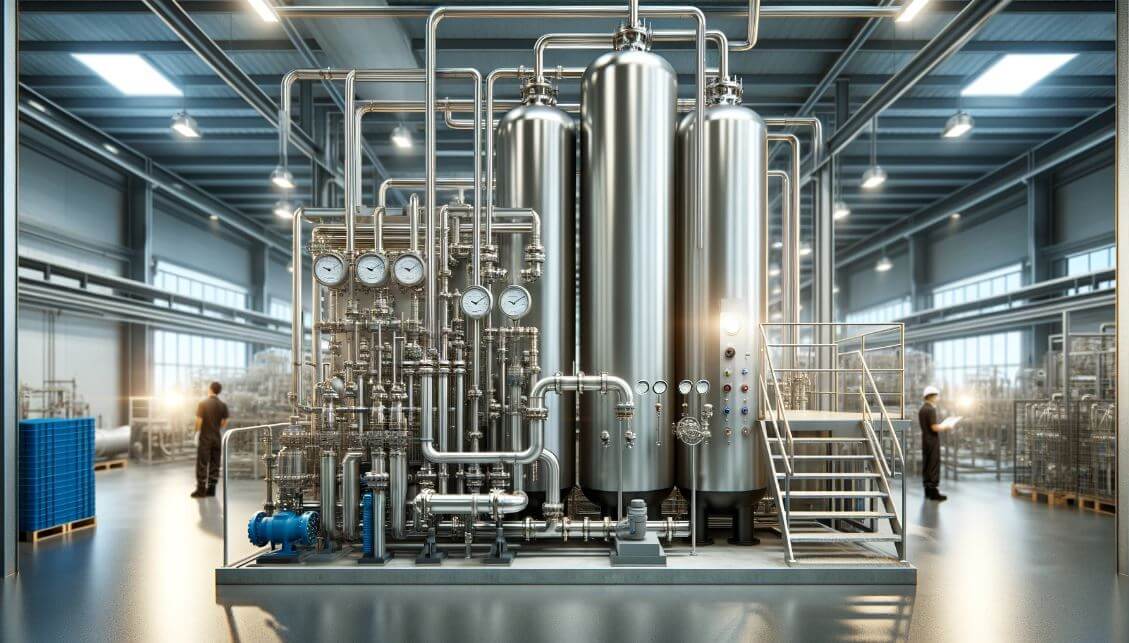
Industrial water softeners are essential components in many sectors including manufacturing, pharmaceuticals, and food processing. They prevent scale build-up, improve efficiency, and extend the lifespan of machinery. However, standard models often fail to meet the specific needs of all industries. This article explores the importance of designing custom industrial water softeners tailored to unique requirements.
Understanding Water Softener Basics
An industrial water softener removes minerals like calcium and magnesium from water, which are primarily responsible for hardness. This process typically involves ion exchange resins that replace these minerals with sodium ions. Customizing this basic functionality allows industries to address specific challenges such as variable water flow rates, high mineral content, and space constraints.
Identifying the Need for Customization
Customization begins with a thorough analysis of the water quality and operational requirements of the facility. Factors such as the hardness level of the incoming water, the volume of water used daily, and the specific quality requirements of the industrial processes involved are critical. For example, a textile manufacturer might need water with a very low hardness level to prevent damage to fibers and dyes, while a pharmaceutical company might require extremely pure water devoid of all contaminants.
Design Considerations for Custom Softeners
Capacity and Size: Custom softeners can be designed to handle higher capacities than standard units, which is particularly useful for industries that use large volumes of water. Conversely, for smaller operations or facilities with space limitations, compact designs that do not compromise on efficiency can be developed.
Regeneration Cycle Customization: The regeneration cycle of a water softener, which is the process of flushing out trapped minerals from the system, can be customized to fit the production schedule of the facility. This ensures that the softener is always operating at peak efficiency without interrupting industrial operations.
Advanced Control Systems: Incorporating advanced control systems into custom water softeners allows for better management of the softening process. These systems can automate water quality monitoring and adjust operations based on real-time data, leading to significant improvements in both water quality and system efficiency.
Material Choices: Industrial environments can be harsh, and the choice of materials for constructing water softeners is crucial. Corrosion-resistant materials such as stainless steel or composites can be used to enhance durability and longevity.
Benefits of Custom Industrial Water Softeners
- Increased Efficiency: Custom softeners are precisely tailored to meet the water usage and quality requirements of specific industrial processes, thereby enhancing operational efficiency.
- Cost Savings: By optimizing the softening process, custom systems reduce the frequency and cost of maintenance and extend the life of equipment.
- Improved Product Quality: Consistent water quality can significantly impact the quality of the products manufactured, particularly in industries like food processing and pharmaceuticals.
- Environmental Compliance: Custom water softeners can also help industries meet stringent environmental regulations by efficiently managing water usage and minimizing waste.
Conclusion
The design of custom industrial water softeners requires a deep understanding of both water chemistry and industrial processes. With the right expertise, these systems can be engineered to meet the specific demands of any industrial operation, providing a clear competitive advantage and contributing to more sustainable practices. Industries considering an upgrade to their water treatment systems should consult with specialists who can provide insights and solutions tailored to their unique needs, ensuring that their investment in water treatment technology delivers optimal results.
